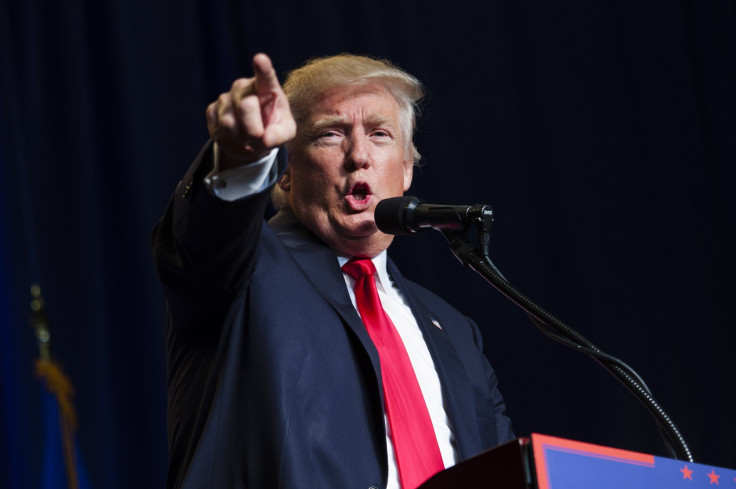Philippines lawmaker calls for Donald Trump to be permanently banned from country
It comes after the US presidential candidate referred to the Philippines as a 'terrorist nation'.

A lawmaker in the Philippines is seeking measures to permanently ban US Republican presidential nominee, Donald Trump, from entering the country. Manila Congressman Joey Salceda's comments come after Trump referred to the Philippines as one of the "terrorist nations".
Trump hit out at the south-east Asian country during a rally in Portland, Maine on 4 August. Speaking about how the US was "letting people come in from terrorist nations", Trump cited an apparent case of an illegal permanent resident in the country, originally from the Philippines, who was convicted of plotting to join terrorist groups to kill Americans, adding: "This could be the great Trojan horse of all time."
However, Congressman Salceda has responded angrily to the accusations and filed a bill in Manila's House of Representatives to have the US Republican nominee banned. Citing data from the US State Department, Salceda said that roughly 4m people of Filipino descent live in the US and make up the second largest population of Asian-Americans.
According to Reuters, Salceda's bill said: "There is no feasible basis or reasonable justification to the wholesale labelling of Filipinos as coming from a 'terrorist state' or that they will be a Trojan horse."
Salceda urged the Philippines' Congress to adopt his House Resolution 143 bill that seeks to ban Trump on the grounds that it would be in the national interest of the country. According to the Manila Times, his bill cites an immigration order that allows for barring foreigners from entering the Philippines.
Should Congress adopt the bill, the Philippines would not be the first country to consider banning the controversial US presidential candidate. In January 2016, a UK government petition to block Trump from entering the country gained nearly 600,000 signatures and prompted a debate in the Houses of Parliament.
The petition was sparked after Trump called for a ban on Muslims entering the US, with signatories raising concerns over consistent hate speech from the US billionaire. However, British MPs voted not to place any bans on the possible future US President.
© Copyright IBTimes 2024. All rights reserved.






